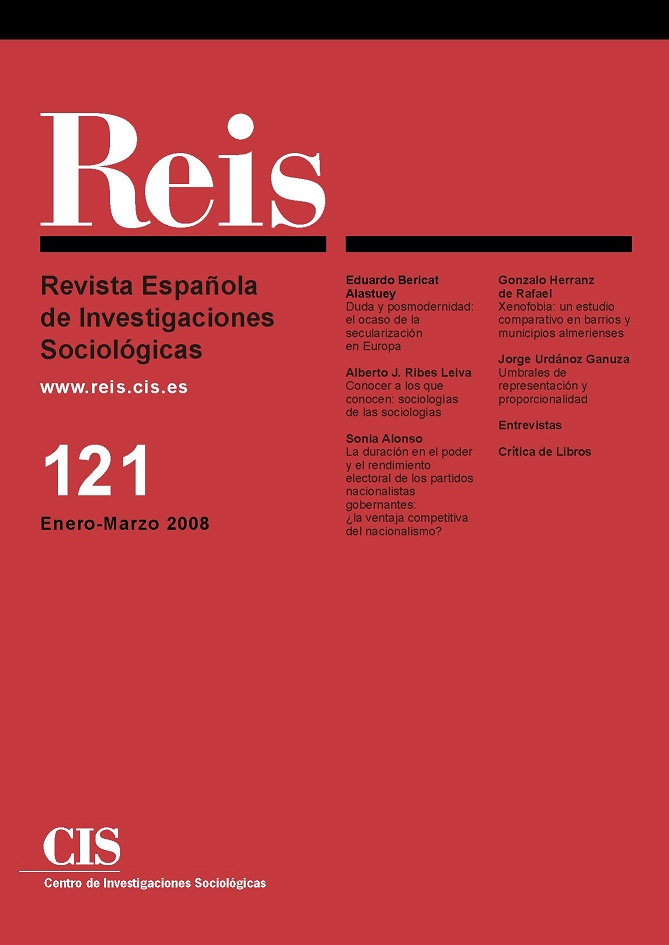Doubt and postmodernity: the decline of secularisation in Europe
DOI:
https://doi.org/10.5477/cis/reis.121.13Keywords:
Religion, Secularisation, Scepticism, Culture, Europe, TypologyAbstract
This paper shows the results of an empirical and theoretical analysis intended to determine the current state of religiosity in Europe, that is, the degree to which Europeans give their allegiance to either a religious world view or a secular one. Applying multiple correspondence and cluster K-means analysis to the data gathered from the ISSP European survey «Religion-II», a new typology based on five basic cultural positions has been developed: religious; believers; sceptics; agnostics and atheists. These results show the quantitative extent and the qualitative importance of scepticism. Through an interpretation of the contents of each type, it shows that the scepticism regarding both religious and secular world views represents, at this particular moment in time, an essential key to European culture. We cannot affirm that there is a return to religious matters, but it is clear that the secularisation process has lost some of its original strength. Post-modern Europe is immersed in a cultural crossroads, and will have to decide about its future. The article ends by showing the three possible strategies for settling the doubt: the Kierkegaardian resolution, whereby Europeans will take up either exclusive religious or secular positions; the Borgian solution, whereby religious and secular content and forms will be hybridized; and the Hegelian dissolution, through which Europe may possibly develop a new cultural synthesis built from the remains of the old secular and religious world views.
Downloads
Downloads
Published
How to Cite
Issue
Section
License
Copyright (c) 2024 Revista Española de Investigaciones Sociológicas

This work is licensed under a Creative Commons Attribution-ShareAlike 4.0 International License.
Permite Compartir — copiar y redistribuir el material en cualquier medio o formato, Adaptar — remezclar, transformar y construir a partir del material para cualquier propósito, incluso comercialmente.








